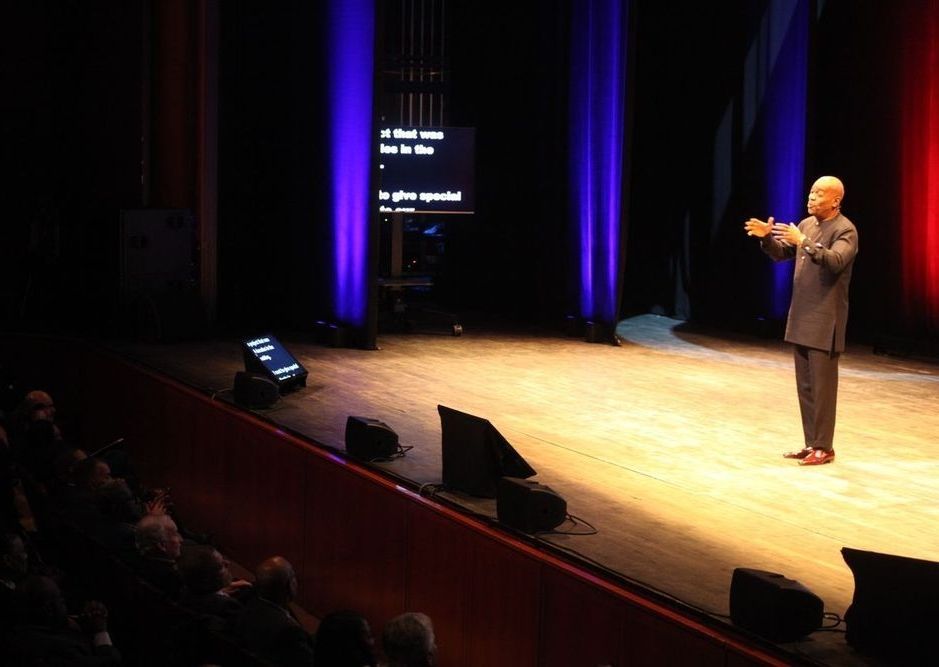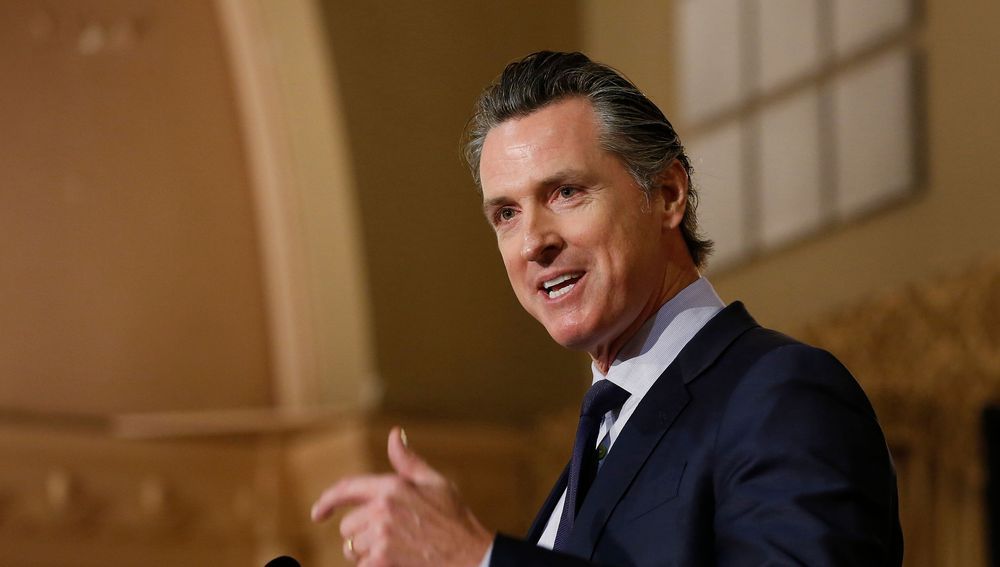Newark Mayor Ras Baraka speaks during his fifth state of the city address at the New Jersey Performing Arts Center on March 12, 2019. (Karen Yi | NJ Advance Media for NJ.com)


Newark Mayor Ras Baraka speaks during his fifth state of the city address at the New Jersey Performing Arts Center on March 12, 2019. (Karen Yi | NJ Advance Media for NJ.com)

Cognitive computing (CC) technology revolves around making computers adept at mimicking the processes of the human brain, which is basically making them more intelligent. Even though the phrase cognitive computing is used synonymously with AI, the term is closely associated with IBM’s cognitive computer system, Watson. IBM Watson is a supercomputer that leverages AI-based disruptive technologies like machine learning (ML), real-time analysis, natural language processing, etc. to augment decision making and deliver superior outcomes.
My colleague Conor Sen recently made a bold prediction: Government will be the driver of the U.S. economy in coming decades. The era of Silicon Valley will end, supplanted by the imperatives of fighting climate change and competing with China.
This would be a momentous change. The biggest tech companies — Amazon.com, Apple Inc., Facebook Inc., Google (Alphabet Inc.) and (a bit surprisingly) Microsoft Corp. — have increasingly dominated both the headlines and the U.S. stock market:


James Hughes : “Great convo with Yuval Harari, touching on algorithmic governance, the perils of being a big thinker when democracy is under attack, the need for transnational governance, the threats of automation to the developing world, the practical details of UBI, and a lot more.”
In this episode of the Waking Up podcast, Sam Harris speaks with Yuval Noah Harari about his new book 21 Lessons for the 21st Century. They discuss the importance of meditation for his intellectual life, the primacy of stories, the need to revise our fundamental assumptions about human civilization, the threats to liberal democracy, a world without work, universal basic income, the virtues of nationalism, the implications of AI and automation, and other topics.
Yuval Noah Harari has a PhD in History from the University of Oxford and lectures at the Hebrew University of Jerusalem, specializing in world history. His books have been translated into 50+ languages, with 12+ million copies sold worldwide. Sapiens: A Brief History of Humankind looked deep into our past, Homo Deus: A Brief History of Tomorrow considered far-future scenarios, and 21 Lessons for the 21st Century focuses on the biggest questions of the present moment.
Twitter: @harari_yuval
Want to support the Waking Up podcast?
Please visit: http://www.samharris.org/support
Get Sam’s email newsletter: https://www.samharris.org/email_signup



This thesis has been rolling around like a marble in the bowl of a lot of people’s brains for a while now, and many of those marbles were handed out by Martin Ford, in his 2015 book, “Rise of the Robots: Technology and the Threat of a Jobless Future.” In the book, and in an essay in “Confronting Dystopia: The New Technological Revolution and the Future of Work” (Cornell), Ford acknowledges that all other earlier robot-invasion panics were unfounded. In the nineteenth century, people who worked on farms lost their jobs when agricultural processes were mechanized, but they eventually earned more money working in factories. In the twentieth century, automation of industrial production led to warnings about “unprecedented economic and social disorder.” Instead, displaced factory workers moved into service jobs. Machines eliminate jobs; rising productivity creates new jobs.
Probably, but don’t count yourself out.

With the price of a bitcoin surging to new highs in 2017, the bullish case for investors might seem so obvious it does not need stating. Alternatively it may seem foolish to invest in a digital asset that isn’t backed by any commodity or government and whose price rise has prompted some to compare it to the tulip mania or the dot-com bubble. Neither is true; the bullish case for Bitcoin is compelling but far from obvious. There are significant risks to investing in Bitcoin, but, as I will argue, there is still an immense opportunity.
Never in the history of the world had it been possible to transfer value between distant peoples without relying on a trusted intermediary, such as a bank or government. In 2008 Satoshi Nakamoto, whose identity is still unknown, published a 9 page solution to a long-standing problem of computer science known as the Byzantine General’s Problem. Nakamoto’s solution and the system he built from it — Bitcoin — allowed, for the first time ever, value to be quickly transferred, at great distance, in a completely trustless way. The ramifications of the creation of Bitcoin are so profound for both economics and computer science that Nakamoto should rightly be the first person to qualify for both a Nobel prize in Economics and the Turing award.
For an investor the salient fact of the invention of Bitcoin is the creation of a new scarce digital good — bitcoins. Bitcoins are transferable digital tokens that are created on the Bitcoin network in a process known as “mining”. Bitcoin mining is roughly analogous to gold mining except that production follows a designed, predictable schedule. By design, only 21 million bitcoins will ever be mined and most of these already have been — approximately 16.8 million bitcoins have been mined at the time of writing. Every four years the number of bitcoins produced by mining halves and the production of new bitcoins will end completely by the year 2140.